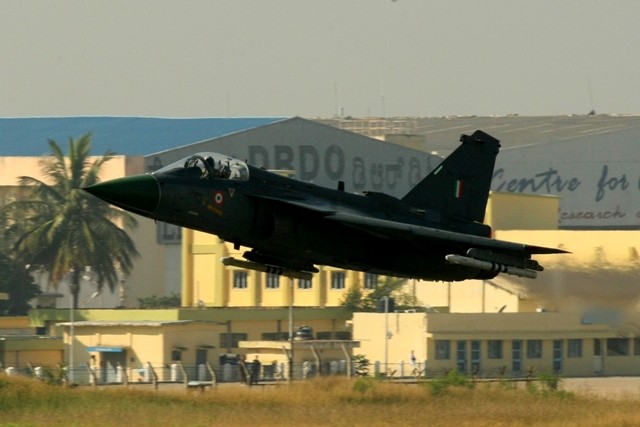
Indian multinational conglomerate Adani Group is reportedly soon expected to make an entry into the growing Indian Aerospace and Defence sector.
The Economic Times on Tuesday reported that the Gujarat-based MNC "is quietly evaluating a foray into defence and aerospace production."
The report suggested that the Adani group could venture into helicopter manufacturing sector.
ET reported that Adani executives led by Karan Adani, the elder son of billionaire group chairman Gautam Adani, have met with representatives of large overseas defence companies to explore tie-ups for manufacturing a range of defence equipment.
The Adani Group is the latest among large Indian MNCs to set foot into the defence and aerospace sector. Under the Modi government, with a view that the Indian Aerospace and Defence sector will note a phenomenal growth, several companies have recently entered the rising market.
Recently reports had emerged that the Reliance Group is planning to enter the defence and aerospace sector. Similarly there also have been reports that Tatas, Mahindra & Mahindra and Larsen & Toubro are also expected to beef up their presence in the Indian Aerospace and Defence sector.
While the Indian Aerospace and Defence sector is expected to grow at a phenomenal rate, industry experts have raised concerns on the acute lack of skilled professionals for the sector. Rajiv Pratap Rudy, Minister of State for skill development and entrepreneurship, back in February had observed that the Indian aerospace sector would need at least one million skilled workmen in next 10 years.
But the biggest drawback according to Aspiring Minds Report 2014 is that "Only a shocking 4 to 7% of engineers are actually fit for jobs in the core engineering sectors".
G Raj Narayan, Founder & MD of the Radel Group and Chief Mentor of DRONA – a finishing school for engineers -- is of the opinion that engineering students, who wish to enter the Indian Aerospace and Defence sector must be given more practical training.
"Aerospace & Defence sector in India is likely to grow ten folds by 2025 opening up diverse career opportunities. But the drawback is not many engineers in the country has the requisite skills or a prior hands on training," Narayan noted.
"It is imperative that the educational institutes expose students to practical training during the course module on global lines making them competent enough to handle the challenges later," he added.







![Raha turns 2: Alia Bhatt -Ranbir Kapoor host jungle themed birthday party for daughter, Kareena Kapoor, Rani Mukerji, Pooja Bhatt, Karan Johar attend [Pics]](https://data1.ibtimes.co.in/en/full/805705/raha-turns-2-alia-bhatt-ranbir-kapoor-host-jungle-themed-birthday-party-daughter-kareena.jpg?w=220&h=138)
!['If I am upset, anxious, I confide in someone': Shreyas Talpade talks about mental health awareness and depression [Exclusive]](https://data1.ibtimes.co.in/en/full/805704/if-i-am-upset-anxious-i-confide-someone-shreyas-talpade-talks-about-mental-health-awareness.jpg?w=220&h=138)



